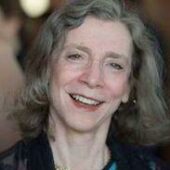
OCD therapists in Quogue, New York NY

Katherine Rabinowitz
Licensed Psychoanalyst, LP, M.A., NCPsyA
OCD is bandied about a lot these days. Sometimes it's confused with OCPD, and they are not the same thing. As this is to be a short description of the issue, the best I can do is to say that OCD is an anxiety disorder and OCPD is a personality disorder. There is some overlap. Both vary in severity, and difficulty hauling oneself out of. That stuckness is part of the disorder itself. To understand it better I suggest you read that part on my website that explains it in greater detail. It's under the tab "What's Troubling You."considerably greater detail.
Asha Kadir
Counselor/Therapist, MHC-LP
I work with people with obsessions and compulsions to help manage symptoms, improve quality of life, and especially to find more self-compassion and understanding. I'm a compassionate and culturally-competent therapist and counselor, with an interest in working with individuals and couples including on all kinds of issues. I believe we can all experience helping people move towards a better and healthier life. I'm trained in DBT, CBT, compassion focused therapy and couples work, and I especially enjoy working with people bringing issues concerning race, culture, religion and spirituality. I offer a free 15-minute consultation with anyone interested in working with me, and I look forward to speaking with you about what you want to accomplish in therapy.
Under The Tree Counseling
Life Coach
Compulsions and anxiety go hand in hand. If someone is nervous about something going wrong, they’ll become obsessed with the idea and eventually convince themselves that they must stop the negative situation from happening. Unfortunately, this mindset can be harmful, however if the client can connect the dots of their anxiety to their behavior, they will begin to see the faulty perception of their actions
Regina Lazarovich
Psychologist, PhD
Does this sound familiar?
You try to make sure that things go well, whether it is keeping yourself and others safe, making the best possible decisions, or being an ethical and moral person. You go to great lengths to avoid negative consequences. You are thorough and detail oriented and may have accomplished a great deal because of these traits.
However, you pay a steep price in the form of recurring unwanted thoughts, images, doubts, or impulses that make you feel anxious and ashamed. These thoughts intrude on your awareness and take your attention away from the people you care about and the things you would rather be doing. These are called obsessions and can fall into one or more categories such as fear of being contaminated by germs, chemicals, or dirt; being plagued by doubts and uncertainty; struggling with decision making; feeling very anxious when objects are not symmetrical or organized in a specific way; feeling scared of unlucky numbers, objects or themes; feeling terrified and disgusted by thoughts or images of losing control and harming yourself or someone else; feeling mortified by thoughts of doing something obscene or inappropriate in public; feeling disturbed by unpleasant immoral, sexual or religious thoughts or images; obsessing about health or any topic whatsoever, including obsessing about whether the obsessing will ever stop.
You try to avoid or escape anxiety-provoking situations, objects and thoughts either to reduce the distress related to your obsessions or to prevent something bad from happening. Whenever you cannot avoid or escape, you feel driven to perform certain actions or think special thoughts to reduce your distress. These rituals are called compulsions.
Common types of compulsions include thinking special thoughts in order to counteract negative thoughts; excessive washing and cleaning; checking and re-checking; counting; organizing things in a specific way; following a strict routine; repeating specific words or actions; trying to do things perfectly; and asking for a lot of reassurance from others. Unfortunately, engaging in compulsions only results in temporary relief and perpetuates the OCD cycle over the long-term. Ultimately, OCD ends up diverting your time and energy from the people and things you truly care about.
With Exposure and Response Prevention (ERP), I will teach you skills for working with thoughts and behaviors so you can break the OCD cycle.
Dr. Julien Moe (Ph.D.)
Psychologist, Ph.D. M.A. (Clinical & Applied Hypnosis), M.Sc. (Clinical Psychology)
OCD is not really an issue if you know how to deal with it. I have been helping my clients with this issue, administering meditation and CBT. My clients with this disorder are getting resilient in no time.





